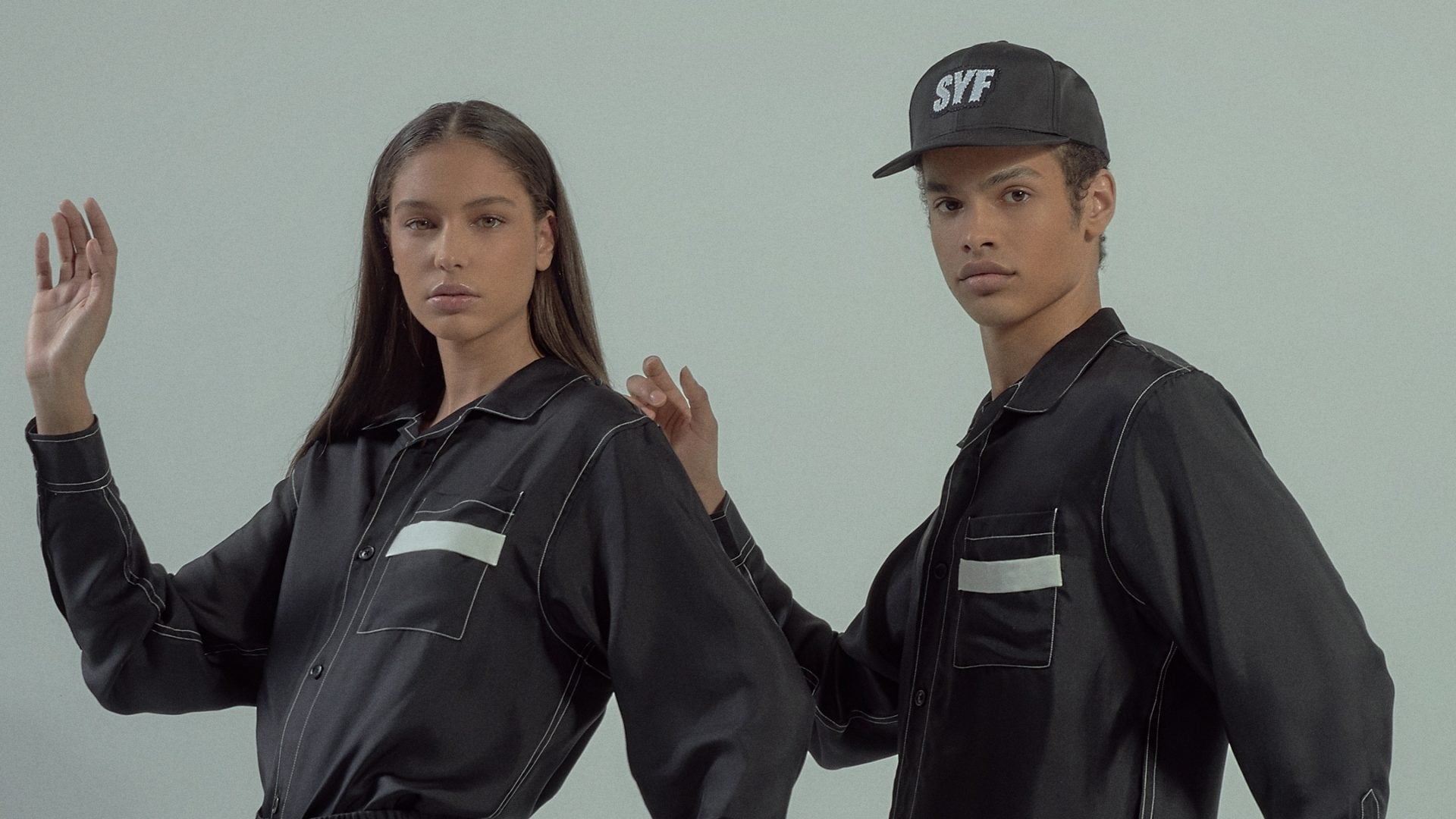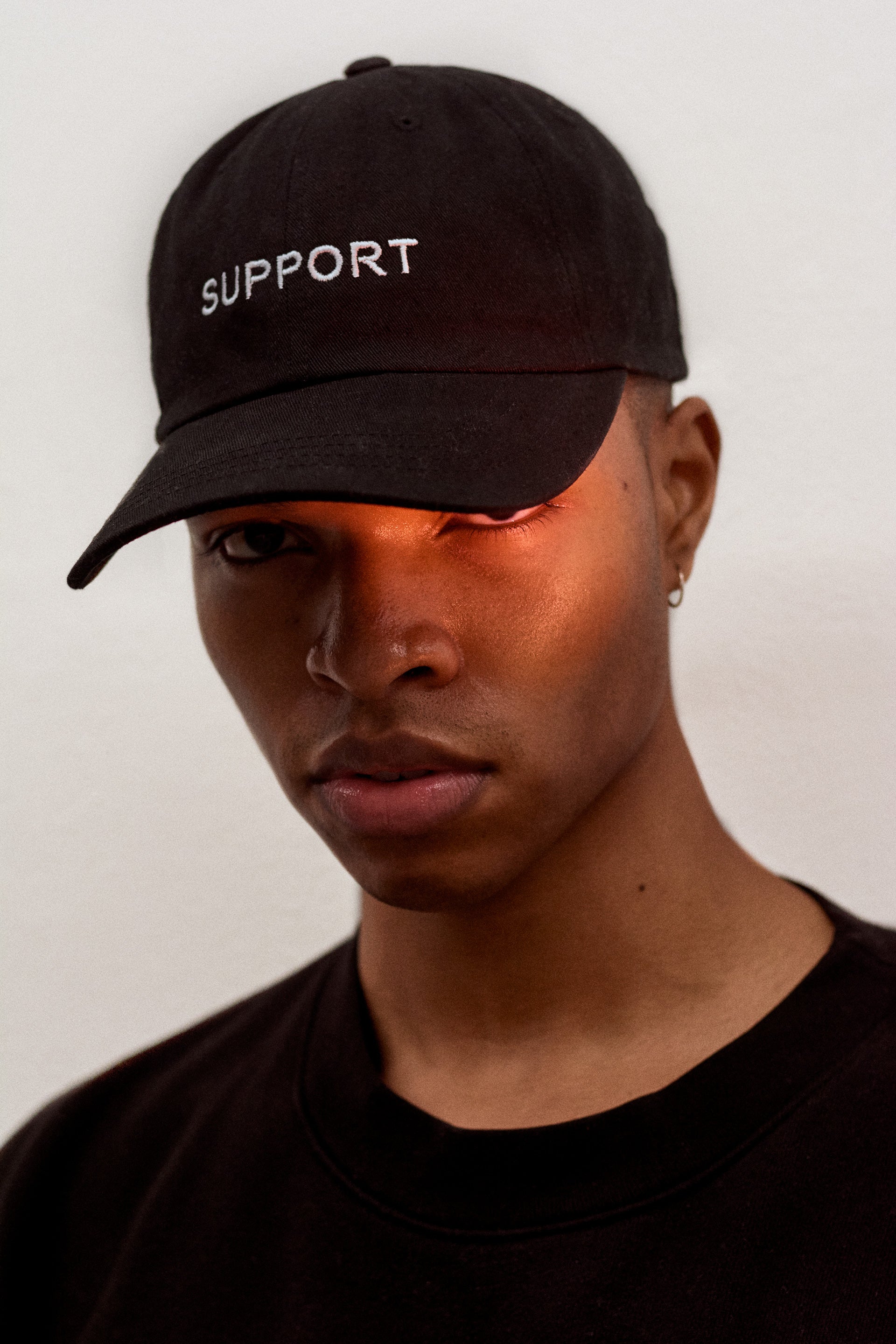
The fashion industry has a reputation for blocking out Black creatives in a space that we have influenced for years. Recently, however, some strides have been made in supporting our burgeoning talent–a welcome acknowledgement of our buying power. One of these newcomers–26-year-old Scott Camaran–is at the helm of luxury streetwear brand KROST where he serves as creative director.
The buzzy fashion label launched late last year and has secured collaborations with the “March For Our Lives” campaign to end gun violence and gained recognition from the CFDA. KROST recently opened a concept store for their Second Semester collection in New York City’s trendy Soho area. Camaran spearheaded the project with founder and CEO, Samuel Krost.
ESSENCE got a chance to chat with the young creative about excelling in his career as a person of color, how he got introduced to KROST and what he thinks about the current state of the fashion industry.

ESSENCE: How did you get your foot in the fashion industry?
CAMARAN: I always wanted to be in the fashion industry in some sort of capacity. I think after high school, I just kind of decided to venture into modeling and then, working in, the retail space. I was professionally modeling for four years and I was in a retail since I was 18 on and off. I have to attribute a lot of my success towards my beginning in retail, because a lot of people don’t realize that it’s on the floor being in front of consumers where you learn the most. That’s why I worked at a lot of places where the aesthetic kind of matched my own.
ESSENCE: Explain your role with KROST, how did you get into to being the creative director?
CAMARAN: Basically my job at KROST is to design all the campaigns and the designs for the collections. I will guide that throughout the process from literally my sketches, to production, to post production. I started with KROST and Sam, the CEO about three years ago. I was working at Acne Studios at that time, a sales associate part time, and he was my client for about a year. He approached me with his vision and concept for KROST and it all started there.
ESSENCE: KROST emerged last year and it’s grown pretty rapidly. How has it been seeing the growth of the brand?
CAMARAN: Honestly, I’m not sure I’ve really been able to step back and see it yet because we’re always working towards the next season. It’s the fashion industry nothing’s ever over where you can relax. Even right now I’m in LA, working on the third collection. We just launched our second collection, so it’s really such a fast process and sometimes it takes a lot to just step back, but at the same time I’m not ignorant to the growth of it. It was very organic.
ESSENCE: You are a black creative director and being one of very few in this field, how does that feel and what does that mean to you?
CAMARAN: That’s a heavy question. There’s just not that many people to look up to that are of color in my position. And it’s better now, but, it really just started to get that way. A few years ago we didn’t have Virgil, even with Off-White, I would say in 2016 is when it really blew up. I was already a model then. I remember going into these rooms for big brands. I’ve been to Paris, I’ve been to Milan, I’ve been to London. It’s very rare that you’re in front of black creative, or someone that was in control at the top who is of color. So it’s very interesting to now be at the helm of a brand and I am able to curate and create and kind of provide a voice and an example for my community. One thing, I detest is just to have diversity for the sake of diversity. Being a person of color who has worked on that side of the industry, where I have been the token black boy – I don’t want that to be the case.
ESSENCE: You see so many brands partnering with influencers and you also see brands like LVMH partnering with Rihanna, where do you think the fashion industry is going right now?
CAMARAN: I don’t really see those followers, those likes, really converting to sales. I always tell people there’s a difference between being a social media influencer and being a real life influencer. Rihanna is a real life influencer. When she walks down the street, regardless of how many followers she has on her Instagram, she is known. There’s a difference between being famous in real life and being famous on the internet. Because if Instagram crashed tomorrow, a lot of people would no longer have a job. I think influencer marketing is becoming over saturated. I don’t want to say it’s dying, but there needs to be a new direction. A new shift and that’s going to happen soon. Just because of how saturated it is.